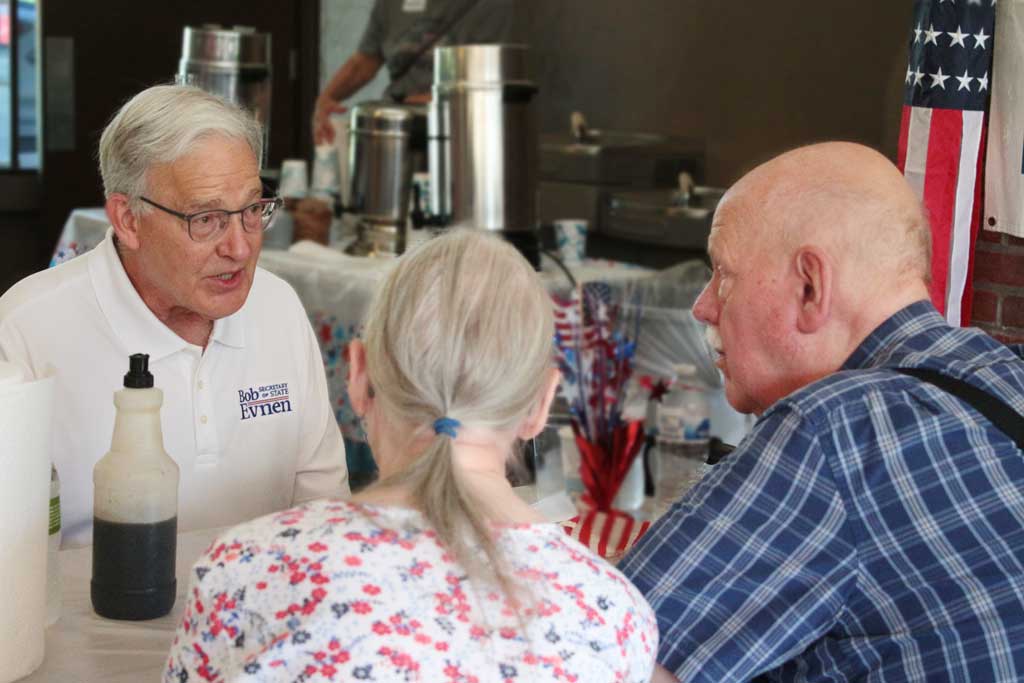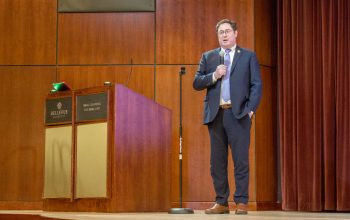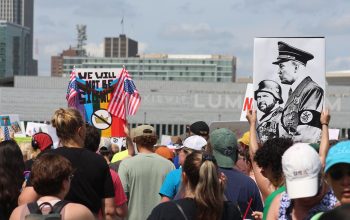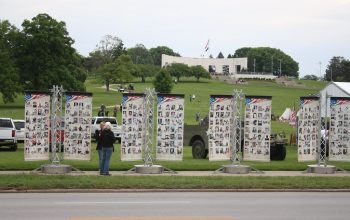I recently had the opportunity to hear from Douglas County Commissioners P.J. Morgan, Mary Ann Borgeson, and Mike Friend. They spoke on a wide range of issues facing county government, including the Omaha streetcar project, which was described as “a mess” and is apparently at a standstill due to a dispute between MUD and the city over who is responsible for replacing aging infrastructure.
This issue was significant enough for me, as a taxpayer and MUD customer, to bring to my elected representative on the MUD Board, Bob Sidzyik. I sent him an email last week asking for clarification on the matter, but I have received no response.
This situation reflects the challenges of civic engagement within our political silos. Commissioners Morgan, Borgeson, and Friend are all Republicans and spoke at the Pachyderm Luncheon in Omaha, a decidedly partisan event. The audience was friendly, but the topics of infrastructure and the streetcar project are nonpartisan issues. Bob Sidzyik, however, is a Democrat, and I have had no opportunity to hear from my own elected representative on this matter in a similar forum.
This is, unfortunately, not unusual. I frequently have the chance to speak with dozens of Republican members of the Nebraska legislature, including Bob Andersen and Rick Holdcroft, who are fellow seated members of the Sarpy GOP. However, I have never even met my own state legislator, Democrat Victor Rountree. This is not for lack of trying—I have emailed his office several times requesting a meeting or the opportunity to attend a town hall. The only response I’ve received was, “Could you give me some idea of what it is you would like to meet about?” Naturally, no meeting has been arranged.
Sen. Rountree has, however, found time to walk in parades for the Sarpy County Democrats and congressional candidate John Cavanaugh. While Rountree endorsed Cavanaugh, he cannot vote for him because he does not live in District 2. Yet, Rountree has not found time to speak with one of his own constituents.
I’m not entirely naïve about the political polarization in our country, which at times feels like a cold civil war, but I’ve also appreciated having access to many elected officials. Being able to speak face-to-face with everyone from U.S. senators to the governor has been a unique privilege. My parents had a ten-minute conversation with Secretary of State Bob Evnen, who was happy to sit and chat when my dad asked, “What, exactly, does the secretary of state do?” This was certainly not a partisan question, but such an interaction could only take place at an event like the Douglas County Republican Party’s Fourth of July pancake breakfast.
Even in a partisan political silo, Republican candidates can still face pushback from constituents. At a recent Sarpy GOP meeting, I witnessed a lively debate between Rick Holdcroft and former Parole Board member Bob Twiss on the merits of “Christmas Tree” bills in the legislature. I also heard a similar discussion between Holdcroft and RNC Committeewoman Fanchon Blythe on the logistics of hand-counting ballots versus using machines, a hot-button issue within Republican circles.
Unfortunately, partisan silos may be the only places where such discussions can still take place. When an elected official like Mike Flood or Pete Ricketts is brave enough to hold an open town hall, Democrats often hijack the event, using it to yell and disrupt in hopes of creating a viral moment for TV cameras. Meanwhile, anyone who wants to discuss bills in Congress or ask a legitimate policy question is shut out of the conversation.
Both sides of the political spectrum must cooperate if meaningful civic engagement is to occur. Elected officials should be open to discussions with constituents of any party, and those constituents should respect the forum provided without trying to hijack it for partisan reasons.
If constituents want to discuss a bill before the legislature or issues involving a public utility, they shouldn’t be limited to engaging only with members of their own political party. That’s not how a functioning democracy is supposed to work, and in our current partisan silos, it isn’t.
Update: 15 days after this post was published (24 since my initial email), I received a response from Julie Thacker, Director of Business Development for Metropolitan Utilities District (M.U.D.), responding on behalf of Director Sidzyik regarding the streetcar project. She confirmed that M.U.D.’s work on relocating mains and services for the project was ongoing, with two crews actively working along Harney Street (11th to 16th and 19th to 28th). Despite occasional temporary shifts to other jobs, the project had not stopped since gas relocation began in February 2024. Thacker apologized for the delayed response, as the email had been caught in a quarantine file, and invited further questions via phone or email.




